★★½
“Largely misses the target”
 As the Olympics get under way in Tokyo (COVID permitting – this is a pre-scheduled post!), it seems an appropriate point to review this, which tells the story of the 1988 Indonesian women’s archery team. They became the first ever from their country to win a non-exhibition medal at the Olympics. This was quite a big deal, considering at the time, the population of the country was 175 million, and they had been competing in the games for 36 years without any success. However, the resulting movie manages to be more like a soap-opera with arrows than the thrilling sports movie it should be, considering they clinched their medal with a sudden-death shoot-out against the might of Team USA.
As the Olympics get under way in Tokyo (COVID permitting – this is a pre-scheduled post!), it seems an appropriate point to review this, which tells the story of the 1988 Indonesian women’s archery team. They became the first ever from their country to win a non-exhibition medal at the Olympics. This was quite a big deal, considering at the time, the population of the country was 175 million, and they had been competing in the games for 36 years without any success. However, the resulting movie manages to be more like a soap-opera with arrows than the thrilling sports movie it should be, considering they clinched their medal with a sudden-death shoot-out against the might of Team USA.
They do get that aspect right, but I’m less certain about the veracity of some other elements. For example, much is made of coach Donald Pandiangan (Rahadian), “the Indonesian Robin Hood,” seeking redemption for having missed the 1980 Olympics due to a boycott. Omitted is the awkward fact he did get to take part in the 1984 Olympics… and came 43rd. Anyway, he has the task of licking into shape the trio of potential candidates: Lilies Handayani (Islan), Nurfitriyana Saiman (Lestari) and Kusuma Wardhani (Basro). The archers have their own range of issues to deal with as well, such as an unsupportive family, who just want them to settle down, marry (their choice, naturally), and get a good job. It’s basically a class in Sports Movie Cliches 1.0.1, with the stern, disciplinarian coach butting heads with his young charges, who just want to sneak out. [I was amused to see the local cinema playing Arnie classic, Commando!]
It does have a certain naive charm, and is so sincere about itself that you can’t complain too much. I think the pseudo-musical number into which the three heroines break, complete with singing at their hairbrushes, demonstrate the good natured and non-threatening approach here. But it’s more than two hours long, and the ratio of drama to sport is far too heavily tilted towards the former. Even when we get to Korea, it doesn’t help that in those days, Olympic archery wasn’t the dramatic, head-to-head knockout contest it later became. That would have been way more exciting to watch, than all teams shooting simultaneously, as depicted here.
The director does his best, and the shoot-off is likely the film’s most effective sequence. Though if I was American, I might be offended by its portrayal of one of their athletes shoving an Indonesian rival to the ground during the competition. I am fairly sure this did not happen, instead being fabricated for dramatic effect. But since I’m British, I don’t care. Our gals finished a plucky fifth. Mind you, I can imagine the South Korean women’s team who actually won the event – as they have every single Olympics where it has taken place – are probably wondering, “Where’s our movie?” I guess it goes to show, being a plucky underdog is just more cinematic. Sorry, Korea.
Dir: Iman Brotoseno
Star: Bunga Citra Lestari, Chelsea Islan, Tara Basro, Reza Rahadian
a.k.a. 3 Srikandi





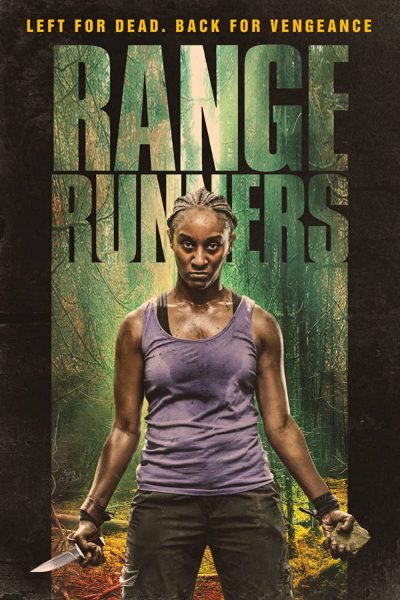 Mel (Cooper) is engaged on a project of running the Appalachian Trail (or a convincing facsimile thereof), with some help from her sister, who meets her at various points to provide support and fresh supplies. Mel is currently on her own, starting an eight-day section of the hike where she’ll be out of contact. However, she bumps into a couple of suspicious characters, deep in the woods: Wayland (Leonard) and his partner, Jared (Woods). Initially, it seems like a creepy, but one-off random meeting. It turns out to be considerably more and subsequent encounters escalate, until Mel is sent plummeting over the edge of a drop-off, badly injuring her leg, but in possession of something very important to Wayland and Jared. Will she be able to escape her pursuers and make it to safety?
Mel (Cooper) is engaged on a project of running the Appalachian Trail (or a convincing facsimile thereof), with some help from her sister, who meets her at various points to provide support and fresh supplies. Mel is currently on her own, starting an eight-day section of the hike where she’ll be out of contact. However, she bumps into a couple of suspicious characters, deep in the woods: Wayland (Leonard) and his partner, Jared (Woods). Initially, it seems like a creepy, but one-off random meeting. It turns out to be considerably more and subsequent encounters escalate, until Mel is sent plummeting over the edge of a drop-off, badly injuring her leg, but in possession of something very important to Wayland and Jared. Will she be able to escape her pursuers and make it to safety?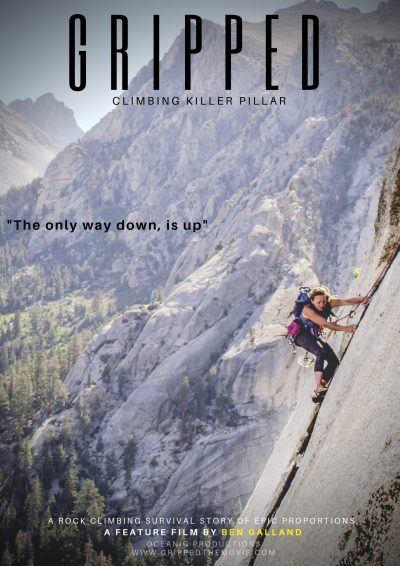 Newbie climber Rose (Maddox) is on her first trip to do some “real” climbing, rather than on a rock wall at her local gym. There, she meets and falls for the insanely rugged good-looking Bret (Lyman, who appears to have strayed right off the cover of a romance novel entitled “Love in the Surf”). After a couple of successfully, but relatively simple climbs, the pair head to take on something more challenging: the infamous “Killer pillar” of the title. Half-way up, a hand-hold used by Bret breaks, sending him tumbling down the cliff-face. Though the rope stops the fall from being fatal, he suffers a torn shoulder and head injury, leaving him unable to lead, and unable to descend. As the poster tagline says, “The only way down is up.” So, it falls on Rose, despite her lack of experience, to take over and forge a route up the near-sheer escarpment, that Bret will be able to navigate in her wake.
Newbie climber Rose (Maddox) is on her first trip to do some “real” climbing, rather than on a rock wall at her local gym. There, she meets and falls for the insanely rugged good-looking Bret (Lyman, who appears to have strayed right off the cover of a romance novel entitled “Love in the Surf”). After a couple of successfully, but relatively simple climbs, the pair head to take on something more challenging: the infamous “Killer pillar” of the title. Half-way up, a hand-hold used by Bret breaks, sending him tumbling down the cliff-face. Though the rope stops the fall from being fatal, he suffers a torn shoulder and head injury, leaving him unable to lead, and unable to descend. As the poster tagline says, “The only way down is up.” So, it falls on Rose, despite her lack of experience, to take over and forge a route up the near-sheer escarpment, that Bret will be able to navigate in her wake. This opens and closes with footage and photographs of the real Michelle Payne, who is the subject of the film. Part of me wonders if that documentary approach might have proved a more successful one, rather than the parade of sports drama cliches we get here. Admittedly, quite a lot of them are based in fact. Payne was the first woman to ride to victory in the Melbourne Cup – that’s Australia’s premier horse-race, roughly equivalent in prestige to the Kentucky Derby or Grand National in the US or UK respectively. This alone, is quite an achievement. But she did so as one of ten brothers and sisters, who largely had to bring themselves up after their mother died when Michelle was only six months old. Her father was a horse trainer, and no fewer than
This opens and closes with footage and photographs of the real Michelle Payne, who is the subject of the film. Part of me wonders if that documentary approach might have proved a more successful one, rather than the parade of sports drama cliches we get here. Admittedly, quite a lot of them are based in fact. Payne was the first woman to ride to victory in the Melbourne Cup – that’s Australia’s premier horse-race, roughly equivalent in prestige to the Kentucky Derby or Grand National in the US or UK respectively. This alone, is quite an achievement. But she did so as one of ten brothers and sisters, who largely had to bring themselves up after their mother died when Michelle was only six months old. Her father was a horse trainer, and no fewer than 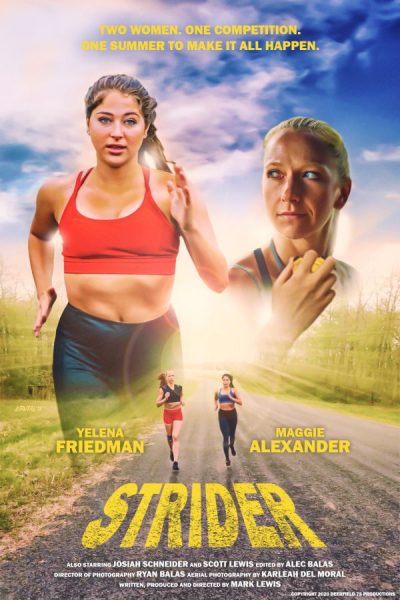
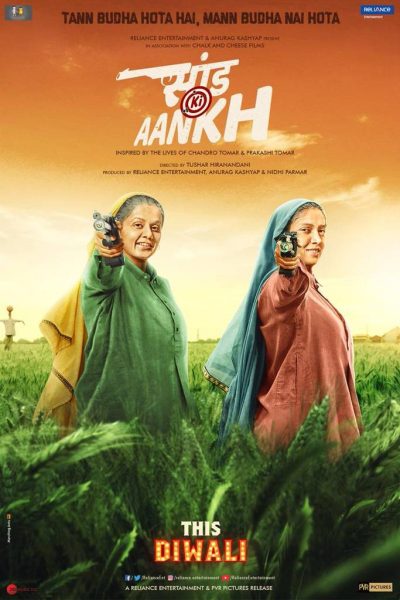 It’s interesting to compare this with the recently reviewed
It’s interesting to compare this with the recently reviewed 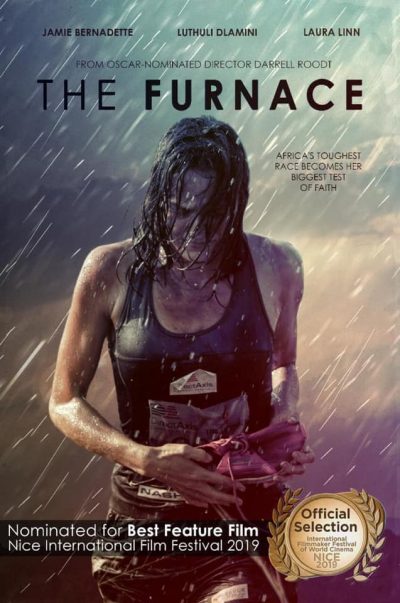 Two days after getting married, Mary Harris (Bernadette) is involved in a car accident which kills her new husband and leaves her barely able to walk. But she has one goal: to compete in the Furnace, an ultra-marathon race through the African wilderness, in which she and her late husband had been planning to take part. This aim goes strongly against the desires of her mother, but Mary won’t be deterred. With the help of her mentor (Dlamini, looking like a younger version of Morgan Freeman), nicknamed “Coffin” due to his day-job as a gravedigger, she claws her way back to fitness, and to the start-line. But is she prepared for everything the environment can throw at her, and make it to the finish? To do so, she’ll have to overcome not just the lethal heat, but also predators for whom she’d be a tasty snack, and poisonous scorpions whose venom induces disorienting hallucinations.
Two days after getting married, Mary Harris (Bernadette) is involved in a car accident which kills her new husband and leaves her barely able to walk. But she has one goal: to compete in the Furnace, an ultra-marathon race through the African wilderness, in which she and her late husband had been planning to take part. This aim goes strongly against the desires of her mother, but Mary won’t be deterred. With the help of her mentor (Dlamini, looking like a younger version of Morgan Freeman), nicknamed “Coffin” due to his day-job as a gravedigger, she claws her way back to fitness, and to the start-line. But is she prepared for everything the environment can throw at her, and make it to the finish? To do so, she’ll have to overcome not just the lethal heat, but also predators for whom she’d be a tasty snack, and poisonous scorpions whose venom induces disorienting hallucinations.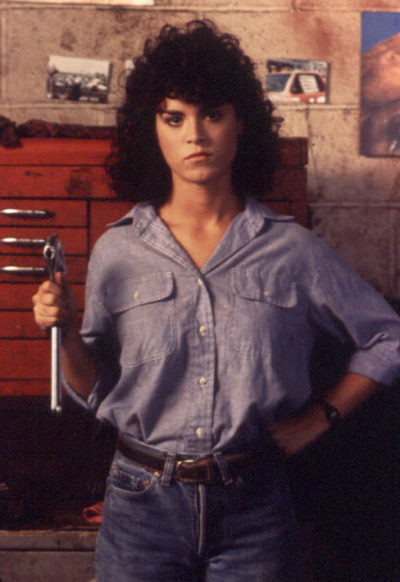 Crown International were an independent movie studio, who operated from the sixties through the eighties: we’ve covered some of their work before, such as
Crown International were an independent movie studio, who operated from the sixties through the eighties: we’ve covered some of their work before, such as 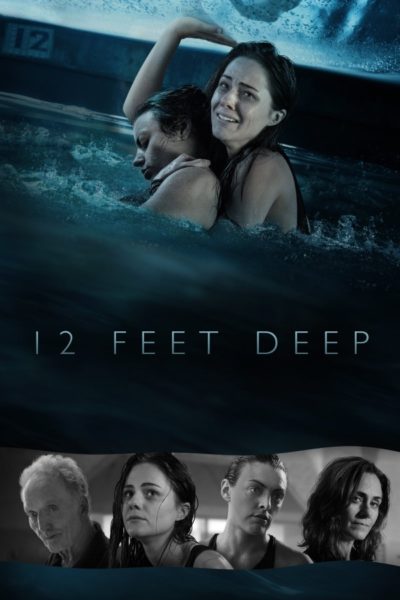 There aren’t many films which will be reviewed both here and on aquaticsintl.com, a site offering “Commercial swimming pool and waterpark industry news” [their opinion: a “woefully inaccurate portrayal of pool technology”]. But then, if you see only one film about sisters trapped underneath a swimming-pool cover this year… Yeah, it’s highly likely to be this one. Eskandari deserves some credit for taking a paper-thin and highly dubious premise and almost stretching it out to feature length. But even he eventually runs out of steam at about the hour mark, and derisive snorting will take over from there.
There aren’t many films which will be reviewed both here and on aquaticsintl.com, a site offering “Commercial swimming pool and waterpark industry news” [their opinion: a “woefully inaccurate portrayal of pool technology”]. But then, if you see only one film about sisters trapped underneath a swimming-pool cover this year… Yeah, it’s highly likely to be this one. Eskandari deserves some credit for taking a paper-thin and highly dubious premise and almost stretching it out to feature length. But even he eventually runs out of steam at about the hour mark, and derisive snorting will take over from there. 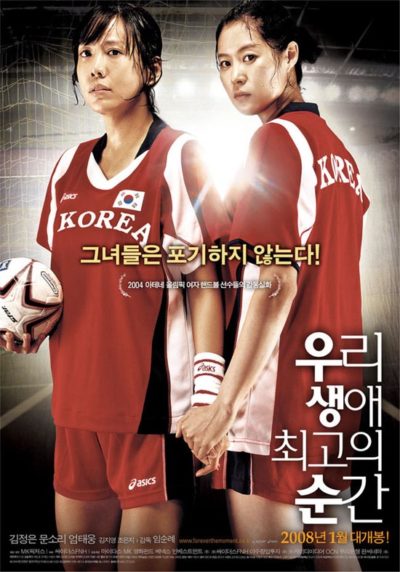 Every four years, when the Olympics arrive, we fall in love with handball. What is handball, you might be asking. Basically, think seven-a-side soccer, except (obviously), played with the hands rather than feet. It’s an amazing sport, all but unknown in the UK and US, and deserving a far wider audience – a YouTube search for “Olympics handball” will get you sorted. Which is why we were fascinated by the idea of a film focusing on it, specially, the story of the 2004 South Korean women’s team. What they did was roughly that country’s equivalent of the 1980 ‘Miracle on Ice’. The once-dominant Korean team had fallen far from grace, and barely qualified for the Athens Olympics. But they reached the final, against the Danish side, which went into double overtime, and then a penalty shootout.
Every four years, when the Olympics arrive, we fall in love with handball. What is handball, you might be asking. Basically, think seven-a-side soccer, except (obviously), played with the hands rather than feet. It’s an amazing sport, all but unknown in the UK and US, and deserving a far wider audience – a YouTube search for “Olympics handball” will get you sorted. Which is why we were fascinated by the idea of a film focusing on it, specially, the story of the 2004 South Korean women’s team. What they did was roughly that country’s equivalent of the 1980 ‘Miracle on Ice’. The once-dominant Korean team had fallen far from grace, and barely qualified for the Athens Olympics. But they reached the final, against the Danish side, which went into double overtime, and then a penalty shootout.